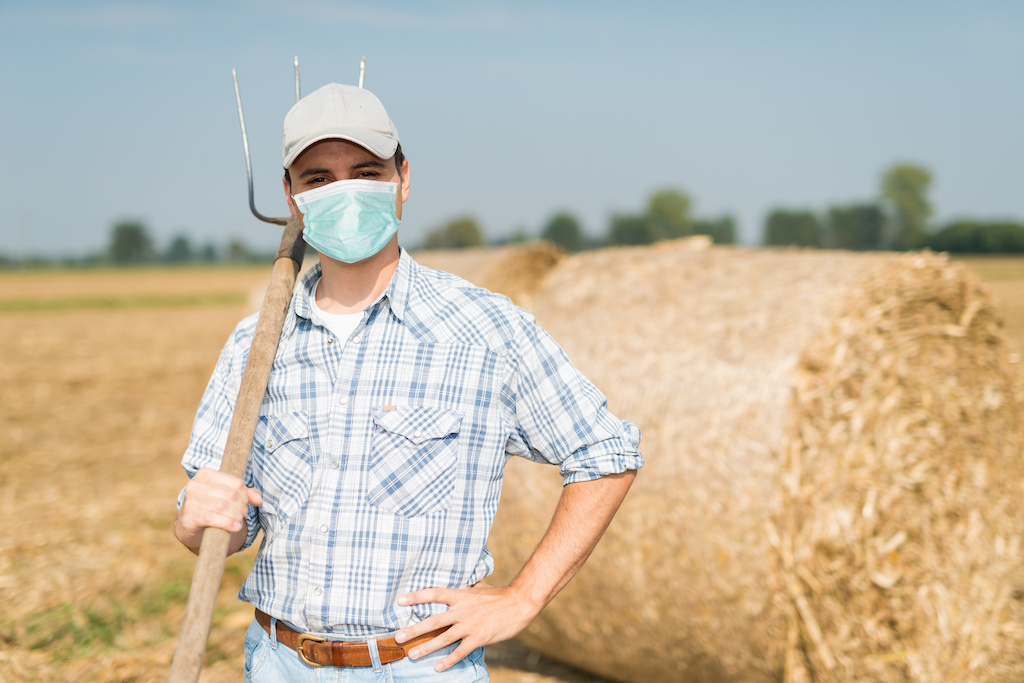Farmer and rancher delegates to the American Farm Bureau Federation’s 102nd Annual Convention today adopted policies to guide the organization’s work in 2021. Key topics ranged from farm diversity to farm labor and dairy policy to livestock marketing. For the first time in AFBF history, delegates met and voted virtually due to COVID-19.
“Our Farm Bureau delegates showed that no challenge, not even a pandemic, will keep them from working to improve the lives of America’s farmers and ranchers,” said AFBF President Zippy Duvall. “Their work not only sets policy for 2021, it will also serve as a guide for AFBF as we prepare to work with a new president and a new Congress to ensure we continue to lead the world in producing healthy and safe food, fiber and fuel.”
Recognizing the importance of broadening access to agriculture, delegates voted to encourage increased racial diversity in farming. This new policy calls for increased funding for USDA programs that make inheriting farms easier and increases funding to promote diverse farmland ownership.
Delegates updated labor policy, emphasizing the importance of reforming the H-2A program by expanding the program to provide visa workers for both seasonal and year-round employment. An expanded program would address workforce shortages and extend the program to operations that do not currently qualify to employ guest workers, like dairy farms.
The Holcomb plant fire and the COVID-19 pandemic caused meat prices to skyrocket while the price paid to farmers dropped. AFBF delegates voted to provide stability in markets by supporting efforts to increase negotiated sales in fed cattle markets. Delegates also called for increased transparency in livestock pricing.
Milk price volatility was exacerbated by the COVID-19 pandemic, resulting in financial damages to dairy farmers in excess of $2.5 billion. Delegates updated dairy policy to call for re-examining the 2018 farm bill’s modification to the milk price formula, improving equity in USDA’s Federal Milk Marketing Order revenue sharing pools, and reaffirmed their support for allowing dairy farmers the opportunity to cast an individual and confidential ballot during milk order referendums.
There are new policies on crop insurance. Delegates called on the Risk Management Agency to improve hurricane protection coverage, including but not limited to, providing protection against both hurricane-force winds and excessive precipitation. Delegates also supported modifying specialty crop insurance to minimize food waste.
Beyond policy changes, delegates also elected members to serve on the AFBF board of directors and national program committees.
Nineteen state Farm Bureau presidents were re-elected to two-year terms to represent their regions on the AFBF board of directors.
Midwest Region
Richard Felts, Kansas
Rich Guebert Jr., Illinois
Craig Hill, Iowa
Kevin Krentz, Wisconsin
Randy Kron, Indiana
Mark McHargue, Nebraska
Kevin Paap, Minnesota
Northeast Region
David Fisher, New York
Joseph Tisbert, Vermont
Southern Region
Jeff Aiken, Tennessee
Russell Boening, Texas
Shawn Harding, North Carolina
Jim Harper, Louisiana
Tom McCall, Georgia
Mike McCormick, Mississippi
Rodd Moesel, Oklahoma
Western Region
Todd Fornstrom, Wyoming
Jamie Johansson, California
Stefanie Smallhouse, Arizona
National Program Committees
Jon Iverson of Oregon was elected as the new chair of the AFBF Young Farmers & Ranchers Committee for a one-year term beginning in March. He will also serve a one-year term on the AFBF board of directors. Jocelyn Anderson of California was elected vice chair and April Castle of Kansas was elected secretary. They will each serve one-year terms.
Reelected to two-year terms on the AFB Women’s Leadership Committee were Isabella Chism of Indiana, Marieta Hauser of Kansas and Lorenda Overman of North Carolina. Chism was elected chair and will serve on the AFBF board of directors; Overman was elected vice chair. Lou Nave of Tennessee, Lisa Wherry of Pennsylvania and Shawn Wood were elected to two-year terms.
Stacey Lauwers of Michigan was elected chair of AFBF’s Promotion & Education Committee; Andrea Brossard of Wisconsin was elected vice chair. Both will serve two-year terms beginning in March.
AFBF thanks the more than 50 speakers and 8,200 attendees who helped make the 2021 Virtual Convention such a success. Registered attendees may view workshops and sessions on-demand on the convention website for the next 90 days. For those who did not attend the convention, select sessions and workshops can be found on the AFBF webpage.
Planning for the American Farm Bureau’s 2022 Annual Convention and Trade Show has already begun. Mark your calendar to meet us January 7-12, 2022, in Atlanta, Georgia.
Disclaimer: Articles featured on Oregon Report are the creation, responsibility and opinion of the authoring individual or organization which is featured at the top of every article.


